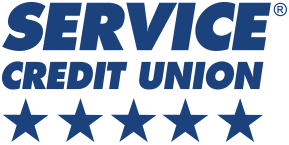Navigating student loan options can be overwhelming, especially when you’re trying to figure out how to balance educational expenses with your existing obligations. What are the key differences between federal loans and private loans? Here is an easy-to-reference guide.
Federal Student Loans
Federal student loans are funded by the U.S. government and offer several benefits that make them a popular choice for many students.
- Fixed Interest Rates: Federal loans come with fixed interest rates, which means your rate won’t change over the life of the loan. This provides stability and predictability in your monthly payments.
- Income-Driven Repayment Plans: These plans adjust your monthly payment based on your income and family size, making it easier to manage your debt after graduation.
- Deferment and Forbearance Options: If you encounter financial hardship, federal loans offer options to temporarily pause or reduce your payments.
- Loan Forgiveness Programs: Certain federal loans may be eligible for forgiveness programs, such as Public Service Loan Forgiveness (PSLF), which can forgive the remaining balance after a set number of qualifying payments and criteria are met.
Private Student Loans
Private student loans are offered by banks, credit unions, and other private lenders. While they can be a useful supplement to federal loans, they come with different terms and conditions:
- Variable or Fixed Interest Rates: Private loans can have either variable or fixed interest rates. Variable rates can change over time, potentially increasing your monthly payments.
- Credit-Based Approval: Your eligibility and interest rate for a private loan depend on your credit score and financial history. You may need a co-signer if you have a limited credit history.
- Less Flexible Repayment Options: Private loans typically don’t offer income-driven repayment plans or loan forgiveness programs. However, some lenders may offer deferment or forbearance options.
- Higher Borrowing Limits: Private loans can sometimes offer higher borrowing limits than federal loans, which can be helpful if you need to cover additional expenses.
Choosing Between Federal and Private Student Loans
When deciding between federal and private loans, it’s generally best to exhaust your federal loan options first. Start by completing the Free Application for Federal Student Aid (FAFSA) to determine your eligibility for federal loans and grants. Explore all available federal loan types, such as Direct Subsidized and Unsubsidized Loans, and consider applying for income-driven repayment plans if needed. Federal loans offer more protections and benefits, especially if you encounter financial difficulties down the road. However, private loans can be a good option if you need additional funds or if you have a strong credit history and can secure a lower interest rate.
Stay Informed About Student Loan Rates and Programs
For the upcoming academic year, it’s important to stay informed about any changes in loan terms and interest rates. The federal government periodically updates these rates, so be sure to check the latest information on the Federal Student Aid website.
Additionally, some private lenders may offer new loan products or promotions. It is worth shopping around and comparing your options.
Taking out a loan is a significant financial decision, and it’s crucial to understand the terms and conditions before borrowing. If you have questions or need personalized advice, reach out to us for support and valuable resources. GreenPath Financial Wellness also offers free financial counseling. Whether you need help with budgeting, paying down debt, or planning for the future, their NFCC-certified experts are ready to support you.
This article is shared by our partners at GreenPath Financial Wellness and does not reflect advice from Service Credit Union. GreenPath is a trusted national non-profit that provides free financial counseling services as well as educational resources.
Make sure to maximize all lower-cost sources of funding before considering a private student loan. For more information, check with your school’s financial aid office or visit the Federal student aid website.
All loans subject to approval and restrictions may apply. We reserve the right to change rates for new applications at any time and without notice. Credit union membership and a minimum share deposit is required.







